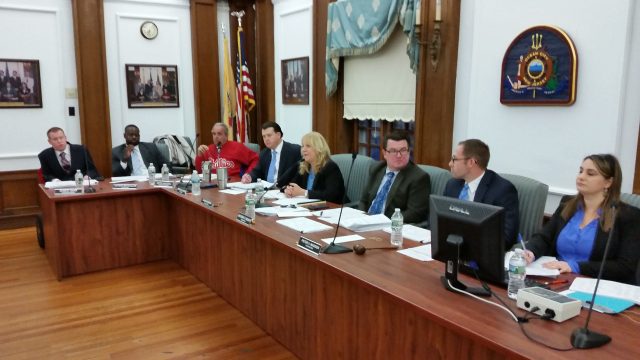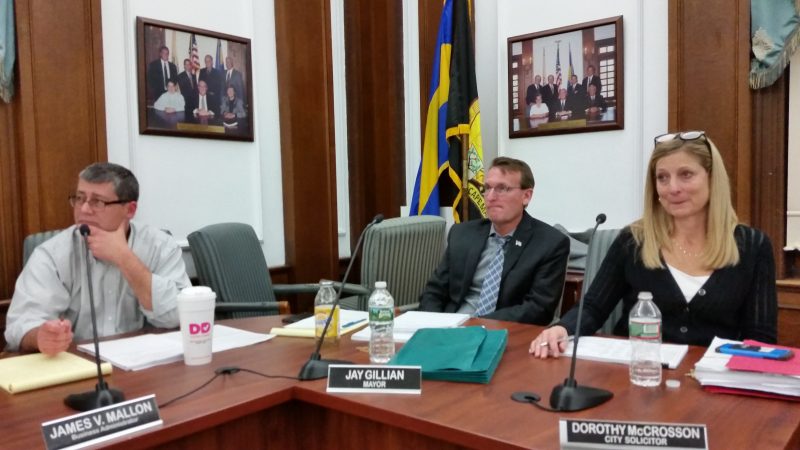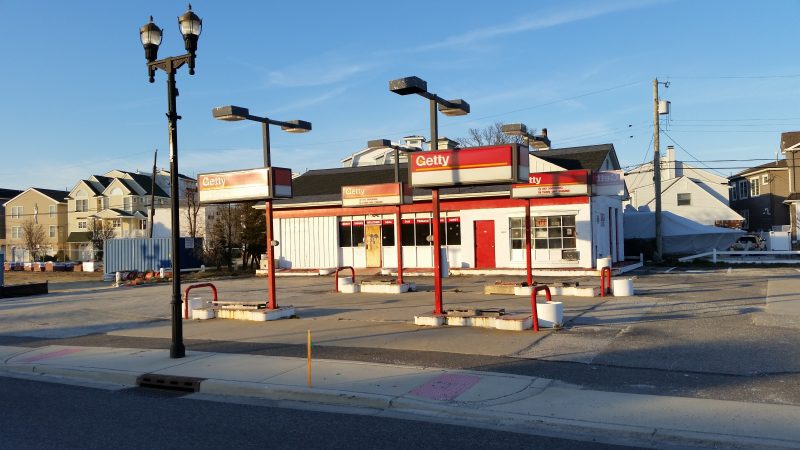
By Donald Wittkowski
Singers, musicians and other performers who entertain the bustling summer crowds on the family-friendly Ocean City Boardwalk will have to play by a new set of rules starting on Memorial Day weekend.
Culminating more than a year of debate, City Council unanimously approved new regulations Thursday night that designate special areas of the Boardwalk where entertainers will be allowed to perform five nights a week between Memorial Day and Labor Day.
Mayor Jay Gillian originally had proposed the regulations last year as a way to prevent conflicts between the performers and the Boardwalk merchants, but withdrew the proposal twice to give negotiators more time to craft a compromise that would satisfy both sides.
The Boardwalk Merchants Association, a group representing shop owners, had sought the regulations to prevent large crowds from milling around the performers and blocking access to their stores.
In discussions throughout the past 12 months, the performers stressed they did not want any regulations that would infringe on their constitutional right to free expression.
City Solicitor Dorothy McCrosson said the ordinance carefully balances the rights of the performers and the merchants. She explained that inspectors from the city’s Department of Community Services will monitor the regulations over the summer for “any unanticipated bumps in the road.”
“We understand, in a way, that this is an experiment,” McCrosson told Council.
Gillian said the regulations will be ready for Memorial Day weekend, the start of the peak summer tourism season. The iconic Boardwalk, the city’s main tourist attraction, is usually packed throughout the summer.
The new ordinance represents the city’s first formal set of rules to regulate Boardwalk performers. The mayor urged patience as the rules get rolled out and everyone begins to adjust.
“Let’s see what happens,” he said in an interview after the Council meeting. “At least we have something.”

In bringing a final plan to Council, Gillian dropped his previous proposal to require adult-age performers to undergo fingerprinting and criminal background checks. Critics had called the proposed fingerprinting requirement onerous and intrusive.
Still, the regulations will bar performers from getting a city license if they have a criminal history of “dishonesty” or have been convicted of a fourth-degree crime or higher. Performers will have to pay $50 for a license.
The performers will not have unfettered access to the Boardwalk, as in the past. Now, they will mainly be restricted to the ocean side of the Boardwalk at Seventh, Eighth, Ninth, 10th, 11th, 12th, 13th and 14th streets.
They will also be allowed to perform at the Boardwalk’s oceanfront pavilions between Fifth and 14th streets. In addition, they will be permitted on the ocean side of the Boardwalk between Fifth and Sixth streets.
There will also be restrictions on when the performers are allowed on the Boardwalk. They will be limited to Monday, Wednesday, Friday, Saturday and Sunday nights. The hours will be between 6 p.m. and 10 p.m. each of those nights except for Sunday, which would be from 7 p.m. to 10 p.m.
Gillian said performers will not be allowed on the Boardwalk on Tuesday and Thursday to avoid conflicts with the professional entertainment on those nights arranged by the merchants.
Councilman Keith Hartzell questioned whether Sundays should be off-limits to performers to create a “quiet night” for Boardwalk strollers who might not be interested in entertainment all week.
“I think there’s a sanctity to Sunday,” Hartzell said. “I want one night quiet.”
However, the mayor and other members of Council argued against making last-minute changes in the regulations that were not agreed to by the performers and the merchants. Hartzell joined with the rest of Council in approving the ordinance.
“If we run into bumps in the road, we iron them out. We fix them,” Councilman Michael DeVlieger said of the possibility of revisiting the ordinance later on.
As part of its job to keep an eye on the performers, the Department of Community Services will write a final report about the regulations after the summer season. McCrosson said the report may recommend changes in the rules, if needed.
Compared to previous Council meetings when the regulations were debated, Thursday night’s session was a relatively tame affair. Unlike in the past, no performers spoke during the public session in favor of or against the regulations.
Jim Tweed, the president of the local government watchdog group Fairness In Taxes, was the only member of the audience to address Council. Noting all of the time that was spent negotiating the ordinance, Tweed called it “a living example on how democracy is supposed to work.”
In another key vote Thursday, Council approved a $650,000 funding package to buy an abandoned former Getty gas station at the corner of Ninth Street and Bay Avenue that has been a longtime eyesore marring the appearance of the main gateway into town.

Hartzell recused himself from the vote, saying that he had recently bought property across the street from the Getty site and wanted to avoid any possible conflicts of interest.
Under the plan, the old Getty property will be demolished and transformed into green space to make the Ninth Street corridor more inviting to visitors. The Getty site will be combined with land next door, formerly occupied by a shuttered BP gas station, to create a landscaped park.
The city bought the old BP site last year for $475,000 and had the property cleaned up. The proposed purchase of the adjacent Getty land will allow the city to remove two blighted properties as it moves ahead with its strategy to spruce up the Ninth Street entryway.
The city hopes to finalize the purchase of the Getty property this spring and have the new park ready by the summer season. Work has already begun on the old BP site, including the construction of a decorative brick wall in the front of the property.
Also Thursday, Council voted to introduce the 2017 municipal budget. The proposed $76.9 million spending plan is up about $1.2 million compared to the 2016 budget, largely due to an increase in debt payments for new construction projects and higher health insurance costs.
“This is very, very tight, folks. It’s right where we should be,” Hartzell of the budget in comments that were echoed by other Council members.
The budget would increase the local tax rate by nearly 3 cents, adding an extra $143 in local taxes per year to a home assessed at $500,000. The figure does not include county and school taxes, which are assessed separately.
Frank Donato, the city’s finance director, said higher taxes will help pay for $33 million worth of new projects this year, including road work, drainage upgrades, dredging of the shallow lagoons, the Boardwalk’s reconstruction and other improvements.
Council’s introduction of the budget was the first of two votes by the governing body on the spending plan. Council will scrutinize the budget in coming weeks for possible changes before holding a public hearing and taking a final vote, tentatively scheduled for April 27.





